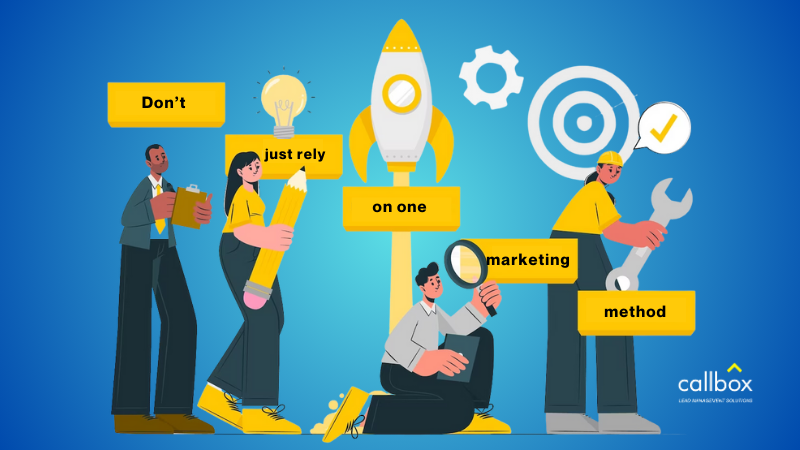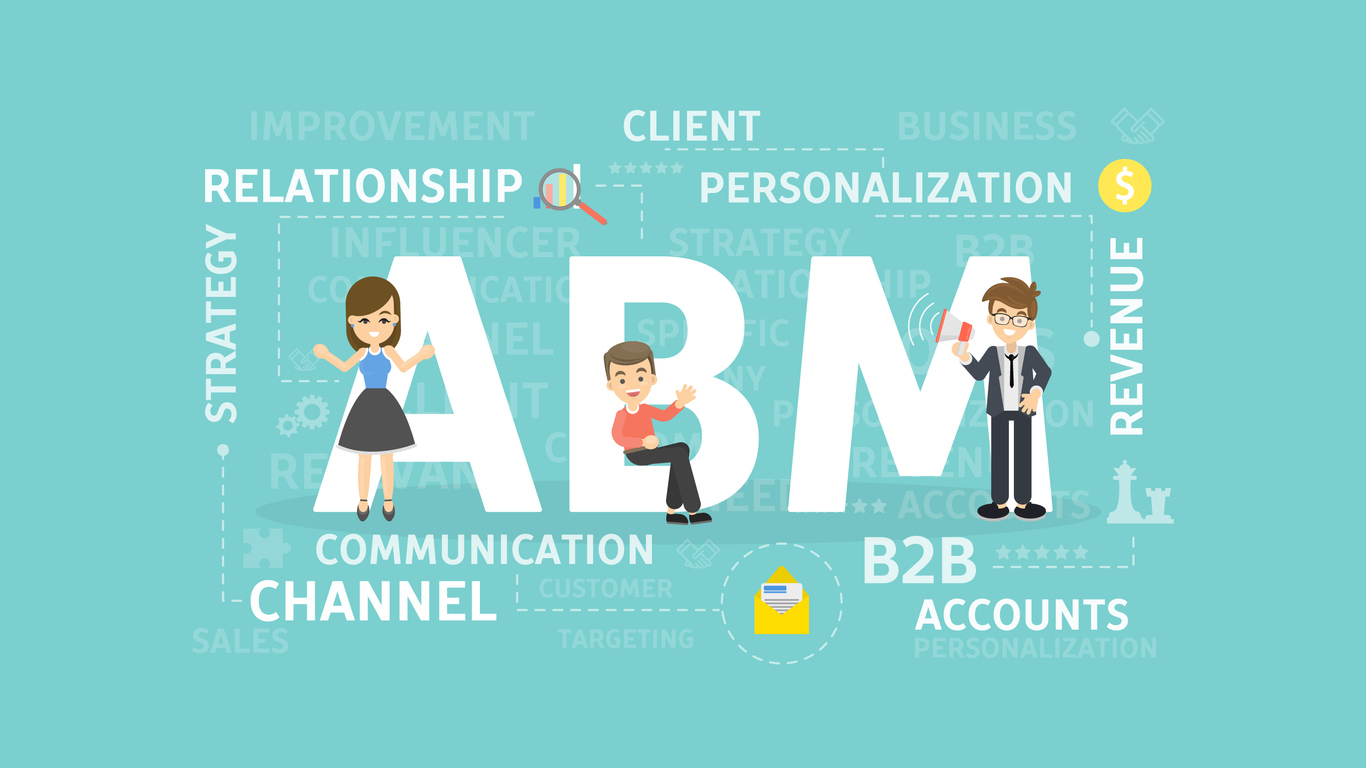
How AI Development Services Scale Projects Like Pros
June 19, 2025
The Ethics of AI Content Generation: What You Should Know
June 23, 2025Account Based Marketing (ABM) is a highly strategic approach that aligns sales and marketing efforts to target and engage specific high-value accounts rather than casting a wide net across a broader audience. ABM flips the traditional B2B marketing funnel by focusing on quality over quantity, enabling marketers to craft personalized campaigns that resonate deeply with select prospects.
ABM has proven particularly powerful for B2B companies because it centers on relationship-building and tailored outreach. As markets become saturated and competition intensifies, particularly in a tech-forward hub like Singapore, the need for precision and efficiency has never been greater. ABM helps businesses stand out by offering bespoke solutions that directly address an account’s needs.
Compared to traditional marketing, ABM reduces waste and maximizes ROI by narrowing the focus to prospects most likely to convert. It’s this laser focus on return that positions ABM as a linchpin in any high-performance marketing strategy, especially when enhanced by Artificial Intelligent tools and AI Marketing platforms.
The Importance of ROI in ABM
Return on Investment (ROI) is the cornerstone of any effective ABM strategy. Unlike traditional marketing campaigns that might focus on impressions or clicks, ABM is driven by tangible business outcomes—closed deals, long-term partnerships, and higher customer lifetime value.
Understanding ROI within the context of ABM involves examining how each campaign influences account engagement, sales pipeline velocity, and ultimately, revenue generation. In Singapore’s competitive business environment, where resources are tightly managed and performance is heavily scrutinized, demonstrating ROI is crucial.
Real-world benchmarks show that ABM outperforms other strategies in B2B lead generation, often delivering up to a 200% increase in engagement and conversion rates. This is especially true when integrated with AI Marketing capabilities, where Artificial Intelligent systems can optimize decision-making and predictive targeting.

Current B2B Marketing Landscape in Singapore
Singapore’s B2B marketing landscape is evolving rapidly, driven by digital transformation, government initiatives supporting innovation, and increasing adoption of automation tools. Industries like technology, finance, logistics, and professional services are increasingly turning to ABM to fuel scalable, predictable growth.
One of the main drivers of ABM adoption in Singapore is the need to improve B2B lead generation efficiency. Traditional tactics such as cold emails and generic webinars are becoming less effective. Marketers now recognize the power of tailored campaigns powered by AI Marketing tools that adapt to buyer behavior in real time.
However, local marketers still face challenges. These include data silos, difficulty in cross-departmental alignment, and limited experience with Artificial Intelligent systems. The key to overcoming these lies in education, agile technologies, and the right strategic frameworks.
Key Components of a High-ROI ABM Strategy
Crafting a high-ROI ABM strategy begins with identifying high-value target accounts. This requires analyzing historical data, market insights, and predictive analytics—often powered by AI—to select accounts with the highest potential for long-term value.
Success also hinges on building cross-functional teams. Sales, marketing, and even customer success must collaborate closely, sharing insights and goals. This alignment fosters consistency across every touchpoint of the customer journey.
Finally, personalization is king in ABM. Campaigns should be hyper-relevant, using dynamic content and tailored messaging delivered through the right channels. AI Marketing tools help automate and scale this personalization, ensuring no opportunity is missed.
Data-Driven Targeting and Segmentation
Precision targeting is the engine of ABM. By leveraging intent data and behavioral insights, companies can proactively reach prospects who are already showing interest. Artificial Intelligent systems excel here by identifying subtle intent signals and predicting buying readiness.
In Singapore, tools such as LinkedIn Sales Navigator, HubSpot, and ZoomInfo are widely used for account intelligence. These platforms offer rich firmographic and technographic data that helps marketers create meaningful segments.
Effective segmentation ensures that messaging is relevant and context-aware. For example, a Singaporean logistics firm might respond better to content focused on supply chain optimization, while a fintech startup might seek scalability and regulatory compliance. AI Marketing solutions enable such nuanced targeting at scale.

Content Strategy for ABM Success
Content is the fuel that powers ABM. Unlike broad content marketing strategies, ABM content must be crafted specifically for each account or persona. This may include personalized emails, industry-specific eBooks, ROI calculators, or even customized videos.
Decision-makers in Singapore’s B2B landscape favor informative, localized content that speaks to their challenges. Multilingual content and cultural sensitivity are vital in this diverse market. Adding layers of AI-driven personalization, such as dynamic content rendering, ensures that each interaction adds value.
Preferred formats often include whitepapers, webinars, and infographics. With AI Marketing platforms, you can track content engagement and automatically serve follow-ups based on user behavior, keeping the conversation moving forward.

Omnichannel Campaign Execution
Executing a successful ABM campaign means meeting your prospects where they are. An omnichannel approach combines email, social media, paid ads, and real-world events to create a cohesive experience.
Singaporean businesses thrive on networking, making events—both virtual and physical—powerful ABM touchpoints. Supplementing these with AI-powered email campaigns and LinkedIn outreach helps maintain visibility.
A robust CRM and marketing automation integration is essential. Platforms like Salesforce and Marketo enable synchronized outreach and tracking, making campaign management seamless and data-driven.

Measurement and Optimization
You can’t improve what you don’t measure. Key performance indicators (KPIs) for ABM include engagement scores, account penetration, pipeline influence, and ultimately, revenue contribution.
Attribution modeling is particularly important in ABM due to the complexity of B2B buying journeys. Multi-touch attribution ensures that each interaction—whether an email click or a sales call—is credited appropriately.
AI-driven analytics platforms allow for real-time performance monitoring and optimization. These insights fuel continuous testing and learning, enabling you to tweak messaging, reallocate budget, and refine targeting to maximize ROI.

Role of Technology in ABM
Technology underpins every aspect of ABM—from data collection to execution. AI Marketing platforms like Demandbase, 6sense, and Terminus are essential for automating workflows and enhancing decision-making.
For Singaporean companies, choosing the right Martech stack involves evaluating cost, ease of integration, and compliance with local regulations. Artificial Intelligent capabilities, such as chatbots or predictive scoring, offer significant competitive advantages.
However, integration can be a hurdle. Aligning CRM, marketing automation, and ABM tools requires careful planning and technical support. The payoff is immense—streamlined operations and a holistic view of account engagement.

Collaboration Between Sales and Marketing
ABM thrives on collaboration. Service Level Agreements (SLAs) ensure that sales and marketing teams are aligned on responsibilities, timelines, and goals.
Joint KPIs, such as account engagement scores or pipeline contribution, reinforce shared accountability. Regular feedback loops—enabled by data dashboards and weekly syncs—help refine strategies and messaging.
In Singapore’s results-driven culture, this alignment is particularly critical. When sales and marketing operate as a unified front, they drive better B2B lead generation outcomes and create more consistent customer experiences.
Budgeting and Resource Allocation
Budgeting for ABM requires a shift from campaign-based spending to account-based investment. Start by estimating the true cost per account, including technology, content creation, and personnel.
Whether operating with a lean team or a large enterprise setup, resource planning is crucial. AI Marketing tools help optimize spending by identifying the most promising accounts and automating repetitive tasks.
For Singaporean businesses navigating tight budgets and high expectations, this efficiency is invaluable. Proper allocation ensures that every dollar is working toward measurable business outcomes.
Compliance, Privacy, and Ethical Considerations
In the digital age, privacy and ethics are non-negotiable. Singapore’s Personal Data Protection Act (PDPA) imposes strict regulations on how businesses collect, store, and use personal data.
ABM strategies must ensure compliance by securing consent, maintaining transparency, and offering opt-out options. Using Artificial Intelligent tools that prioritize data anonymization and secure storage can help ensure adherence.
Ethical targeting—avoiding manipulation or data misuse—builds long-term trust. In markets like Singapore, where reputation is everything, maintaining ethical integrity is not just a legal obligation but a business imperative.
Case Studies: ABM Success in Singapore
A leading financial services firm in Singapore used ABM to target regional CFOs with personalized webinars, increasing engagement rates by 70%. By integrating AI Marketing tools, they were able to track behavior and optimize follow-ups.
A tech startup used Artificial Intelligent chatbots to qualify leads and tailor onboarding content, reducing sales cycles by 40%. The alignment of sales and marketing helped increase conversion rates significantly.
A regional enterprise expanded into ASEAN markets using localized ABM campaigns. By leveraging intent data and personalized email sequences, they grew their account pipeline by 60% in just six months.
Future of Account Based Marketing in Singapore
The future of ABM lies in increased automation, deeper insights, and enhanced personalization. AI and machine learning will play a larger role in predictive targeting, behavioral analysis, and content delivery.
In the next 3–5 years, expect more Singaporean companies to adopt AI Marketing platforms that offer real-time insights and decision support. Customer expectations will also evolve, demanding more personalized, timely, and meaningful interactions.
Staying ahead will require agility, investment in Artificial Intelligent tools, and a commitment to continuous learning and improvement.
Conclusion: Building Your ROI-Driven ABM Playbook
To succeed with ABM in Singapore, businesses must align strategy, technology, and execution. Focus on identifying the right accounts, personalizing outreach, and continuously measuring ROI.
The integration of AI Marketing and Artificial Intelligent platforms is not optional—it’s essential. These tools unlock efficiencies and insights that drive B2B lead generation and customer loyalty.
Start by aligning your teams, investing in the right tools, and piloting a small campaign. Measure results, learn, and iterate. With the right playbook, ABM can transform your marketing outcomes.


